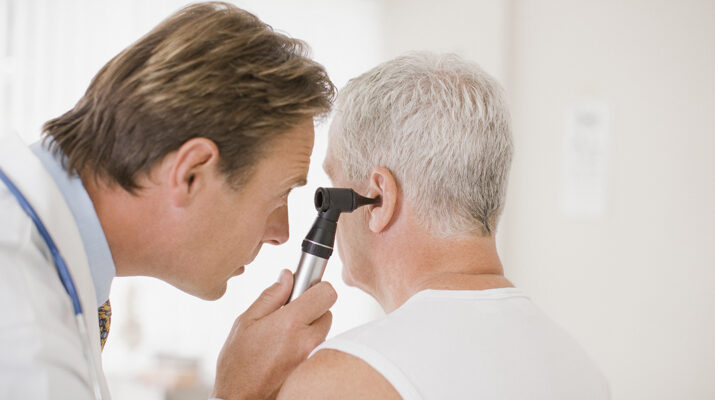It’s about more than missing conversations and cranking up the TV
By Deborah Jeanne Sergeant
Your spouse may continually ask you to turn down the TV. Or perhaps repeat herself louder so you can hear.
It may seem like “everyone mumbles” these days.
But you have even more reasons to have a hearing exam. Untreated hearing loss can eventually bring other unpleasantries to your life.
“Hearing loss affects mortality rate, meaning longevity,” said Joe Kozelsky, retired audiologist, honorary board member of the Hearing Loss Association of America Rochester Chapter in Fairport. “That really means longevity.”
He referenced a study from the National Health and Nutrition Examination Survey that followed a population of younger people with hearing loss.
Those who treated their hearing loss and used appropriately fitted hearing aids regularly lived longer than those who didn’t.
Kozelsky acknowledged that the aids may reflect an overall better engagement in self-care than in the shorter-lived population. He also added that increased fall risk among people with untreated hearing loss.
“A deficiency in one aspect of the ear could relate to the balance aspect,” Kozelsky said. “There is an analogous organ in the semicircular canals, the otoliths, which affect balance. If the hair cells are affected, it makes sense it affects hearing.”
Another aspect of fall risk and hearing loss is that the individual may focus on trying to hear what’s around them, such as conversation or music, that it’s a distraction from the function of walking. That can make staying upright more challenging, especially for people who already struggle with stability.
Untreated hearing loss may also correlate with cognitive function. Kozelsky said that recent studies even show a causal relationship between the two, “although it’s not strongly laid out,” he added. “Deprivation of stimulus of the brain and it leads to less social involvement, decrease in conversation and all those associated issues are physiological factors associated with hearing loss,” he said.
Quality of life is another reason to treat hearing loss. It can shift the family dynamics as the partner with untreated hearing loss must rely increasingly upon the one who hears better, such as ordering dinner at a restaurant, answering the phone, talking with medical providers or making reservations. This effect further narrows the individual’s scope of human interaction and conversation.
It also hampers dialogue between the couple, leading to miscommunication, impatience and resignation about feeling heard and understood.
“You also don’t hear little sounds like the tea kettle or alarm,” Kozelsky said. “Very often you don’t hear those sounds. There’s a safety hazard there. Those people with more advanced hearing loss don’t hear sirens and emergency vehicles.”
Seeking an exam and following through with any prescribed hearing instruments should happen sooner than later, as Kozelsky said those who wait have a harder time adapting.
Unfortunately, many people delay seeking help, as they do not want to bother with seeing another specialist. They may also hold onto stigma about hearing aids being “for old people.”
“A lot of people forget what they’re missing,” said Alexandra Martin, hearing instrument specialist with Greece Miracle Ear.
The ticking of a clock and the soft laughter and speech of grandchildren: many of these sounds go unnoticed or are inarticulate.
“As humans, we adapt and a lot of times, it’s not until you put on a hearing aid and listen to things again that you realize what you’ve been missing,” Martin said. “Hearing is one of our senses and depleting it has a huge impact on being able to recall memory and create connection.”
For example, hearing snow crunch under one’s boots can elicit a memory of sledding as a child. Without hearing that sound, the memory would not surface.
Anyone who notices changes in his hearing or whose family notices changes should schedule an exam. Most insurance covers exams and hearing instruments at least in part. An exam could reveal something other than hearing loss. If the provider does not identify hearing loss, the exam can serve as an important benchmark for future exams.
Martin said that most primary care providers do not screen for hearing loss, so it’s important for patients to advocate for themselves.
“There’s no harm in getting it checked out,” she said. “We really have to make it much more of a priority than it has been.”

